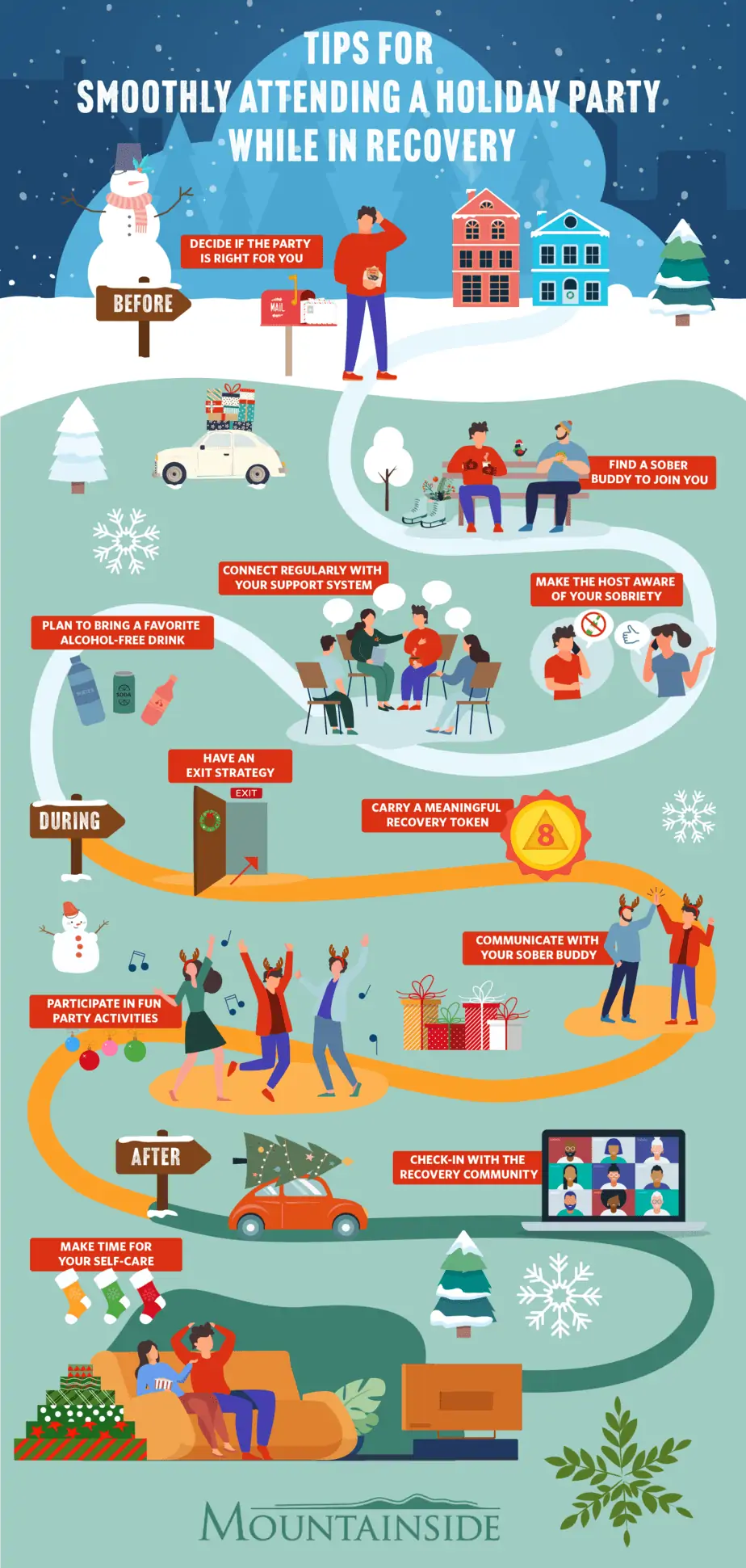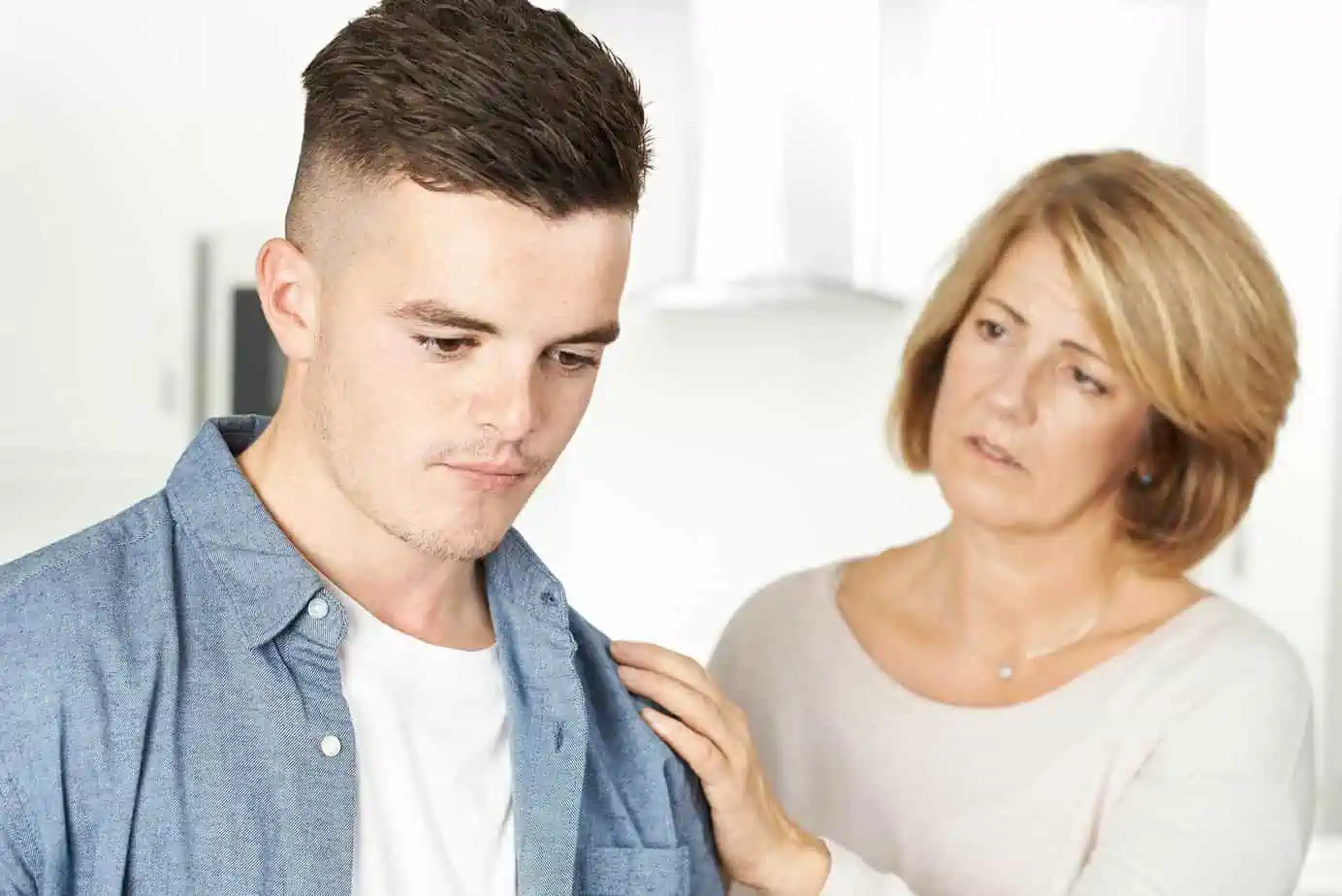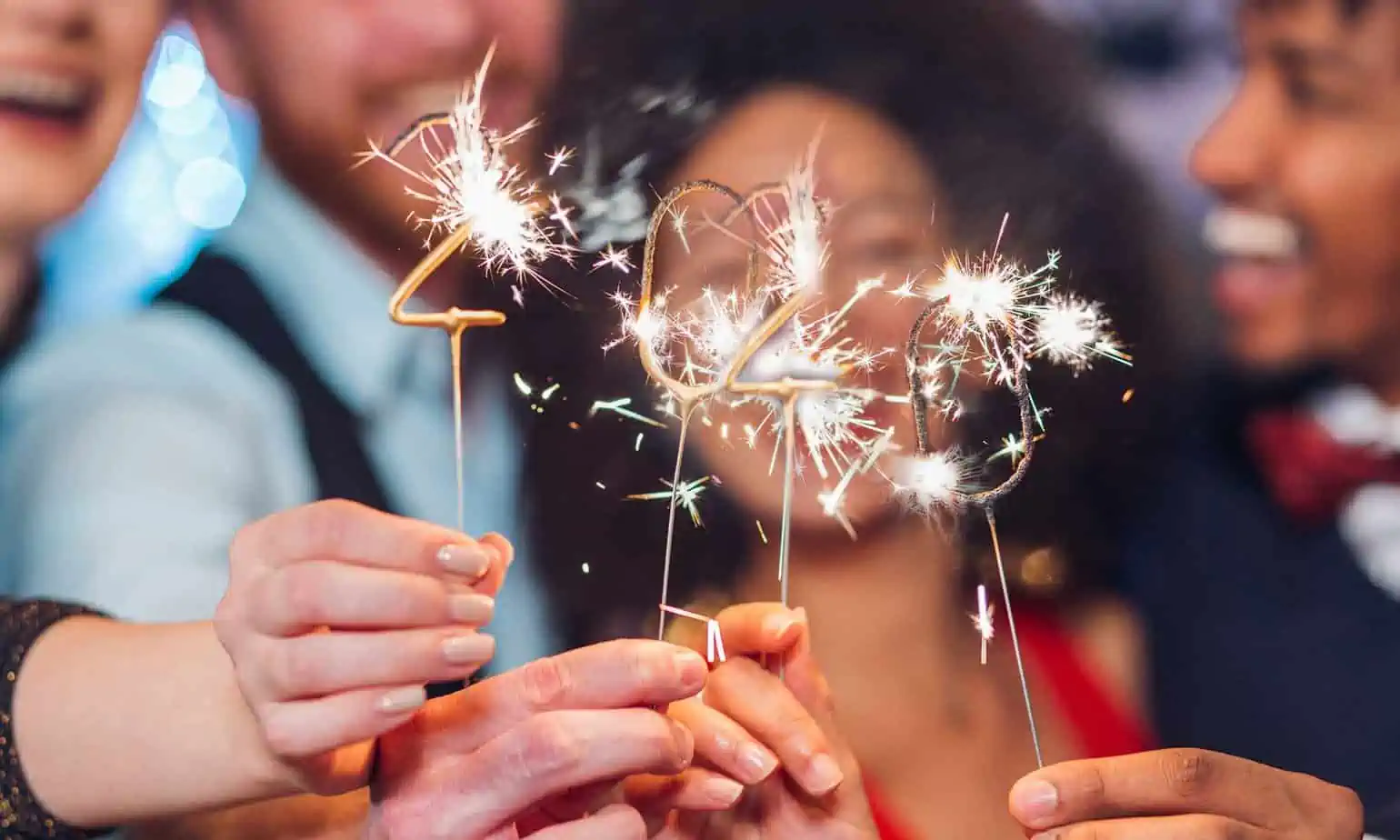The holiday season is a time of joy, celebration, and connection with loved ones. However, for those in recovery from substance use disorders (SUDs), the holidays can also present unique challenges. The festive atmosphere often includes alcohol, which can trigger cravings and feelings of anxiety. Fortunately, with careful planning and a solid strategy, people can navigate parties successfully while maintaining their holiday sobriety. Read on to learn some techniques to help you enjoy the festivities without compromising your recovery journey.

Understanding Your Triggers
Recognizing what triggers your cravings is the first step toward staying sober during the holidays. Triggers can vary significantly from person to person and may include certain people, environments, or situations.
Identifying Personal Triggers
- People: Some individuals might find it challenging to be around former drinking buddies or those who do not support their sobriety.
- Places: Environments associated with drinking, such as bars or clubs, can evoke memories that lead to cravings.
- Situations: Social gatherings where alcohol is prevalent can create pressure, making it harder to maintain sobriety.
Creating a Plan
Once you identify your triggers, develop a plan to handle them effectively. This may involve:
- Avoiding specific events: If you know certain gatherings will be too challenging, it’s okay to decline the invitation.
- Setting boundaries: Communicate your needs to friends and family, so they understand your commitment to sobriety.
Building a Support Network
Having a solid support system is crucial after getting sober from alcohol or drugs, especially during the holiday season. Surrounding yourself with understanding and supportive individuals can make a significant difference.
Connecting with Allies
Reach out to friends, family, or support groups for holiday sobriety who can encourage you. Consider:
- Finding a sober buddy: Invite someone who respects your recovery journey to accompany you to events.
- Joining support groups: Attend Alcoholics Anonymous (AA) meetings or other recovery-focused gatherings to connect with others facing similar challenges.
Communicating Your Needs
Relapse prevention during the holidays includes being open about your intentions to stay sober. Let your loved ones know what support looks like for you, whether it’s checking in during the event or having a safe word to signal when you need help.
Planning Ahead for Events
Preparation, such as bringing your own sober holiday recipes, is key to navigating holiday parties successfully. Planning ahead can reduce anxiety and increase your chances of enjoying the festivities.
Bringing Your Own Zero-Alcohol Drinks
One effective strategy is to bring your non-alcoholic Christmas punch or other drinks to the party. Christmas mocktails or other enjoyable NA drinks ensure you have something enjoyable to sip on and helps you avoid awkward situations where you might be offered alcohol. Consider options like
- Sparkling water
- Non-alcoholic beer
- Holiday mocktails
- Hot non-alcoholic beverages
- Christmas beverages, such as non-alcoholic egg nog
Arranging an Exit Plan
Life after alcohol abuse requires some planning to help prevent relapse. Being prepared to leave if you feel uncomfortable is essential. Before attending the event, establish a plan that allows you to exit gracefully if needed. This might involve:
- Driving yourself: Having your own transportation means you can leave whenever you feel overwhelmed.
- Setting a time limit: Decide in advance how long you will stay, which can help you feel more in control.
Practicing Coping Skills
Utilize the coping strategies you’ve learned during your recovery journey to manage cravings and stress effectively.
Acknowledging Cravings
It’s normal to experience cravings, especially during challenging times. Instead of denying these feelings, acknowledge them. Remind yourself that:
- Cravings are temporary and will pass.
- You have successfully navigated difficult situations before.
Using Mindfulness Techniques
Incorporate mindfulness practices into your routine to help manage stress. Techniques such as deep breathing, meditation, or yoga can be beneficial. These practices can help you remain grounded and focused on your recovery.
Communicating Boundaries
Setting clear boundaries is essential in maintaining your sobriety during holiday gatherings.
Being Honest with Friends and Family
Talking to family about your sobriety is important. Let your loved ones know your commitment to sobriety and what that means for you during the holidays. This could involve:
- Discussing your boundaries: Explain what situations may be challenging for you and how they can help.
- Encouraging understanding: Most people will respect your decision to abstain if they understand your reasons.
Handling Peer Pressure
If someone offers you a drink, feel empowered to decline politely. You can say:
- “I appreciate the offer, but I’m choosing to stay sober.”
- “Thanks, but I’m good with my drink.”
There is also nothing wrong with a simple “no thank you.” Part of empowerment in sobriety is not having to explain your personal choices to others. This is another reason having a holiday mocktail planned is a smart idea—no one will offer.
Seeking Professional Support
If the holiday season proves particularly challenging, consider reaching out for professional help, such as in-person or online outpatient treatment.
Therapy and Counseling
Engaging with a therapist or counselor can provide valuable insights and coping strategies tailored to your situation. They can help you navigate the emotional complexities of the holidays and reinforce your commitment to sobriety.
Utilizing Recovery Resources
Many organizations offer resources specifically designed to support individuals in recovery during the holidays. Look for support groups for holiday sobriety, such as SMART Recovery, or hotlines that can provide guidance and encouragement.
Reframing the Concept of Fun
Many of those in recovery struggle with redefining what fun means to them. It’s essential to shift your perspective to enjoy social gatherings fully.
Exploring New Activities
Engage in activities that bring you joy and fulfillment without the need for alcohol. This might include
- Attending concerts or community events that focus on entertainment without drinking.
- Volunteering and giving back to the community
- Exploring hobbies that you may have neglected while drinking.
Creating Joyful Experiences
Focus on creating new, joyful experiences that do not revolve around alcohol. This could involve
- Planning outings with friends that include activities like hiking, cooking classes, or art workshops.
- Finding joy in simple pleasures, such as spending time with loved ones or enjoying nature.
Hosting a Sober Gathering
Consider taking the initiative to host your own holiday gathering focused on sobriety with zero-alcohol drinks. This can create a supportive environment for you and your friends.
Planning an Alcohol-Free Event
Invite friends and family to join you for a sober celebration. Some ideas for your gathering include
- Mocktail party: Create delicious Christmas beverages and holiday mocktails and encourage guests to bring their favorite recipes.
- Game night: Organize a fun evening filled with board games, trivia, or movie marathons.
Emphasizing Connection
Focus on fostering connections and creating memories that don’t revolve around drinking. Encourage open conversations, laughter, and bonding over shared interests.
Attending holiday parties while in recovery can be challenging, but with the right strategies and support, it is entirely possible to enjoy the festivities while maintaining sobriety.
If you or a loved one is struggling with addiction, Mountainside can help.
Click here or call (888) 833-4676 to speak with one of our addiction treatment experts.

 By
By 






